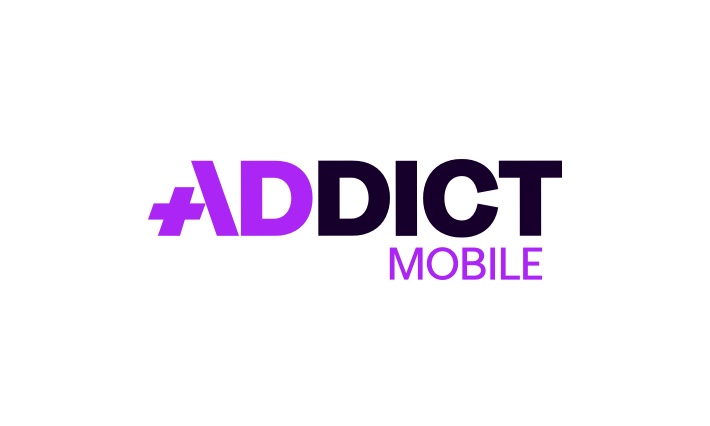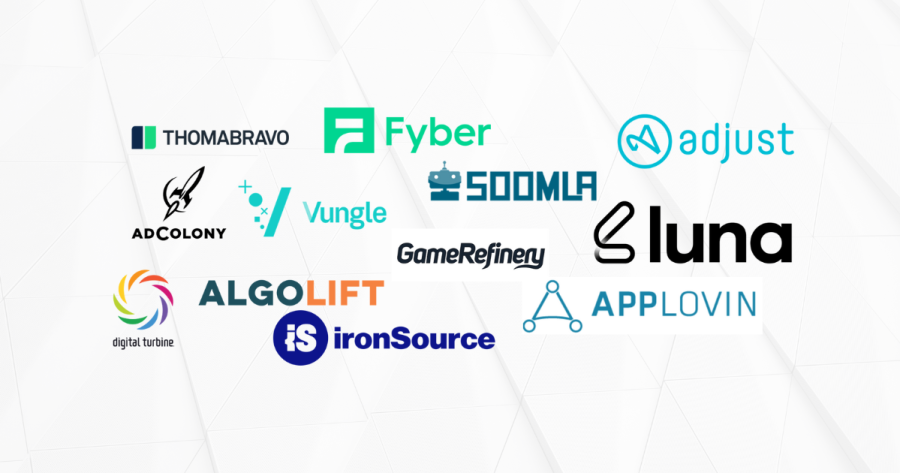Think, Build and Launch your Mobile Game Worldwide

Interview with Grégoire Mercier, Co-Foundeur of Addict Mobile
You just came back from the GMGC event in Beijing. What are the reasons of attending GMGC and what are your feedbacks?
Actually, Addict Mobile has just opened up an office in Shanghai early this year. We think both our technology and ability to act worldwide can be real assets for Asian game developers. GMGC – Global Mobile Game Conference – organizers believed it was relevant to invite me in Beijing to speak up at a dedicated panel about “Overseas Marketing for Mobile Games”. Before I co-founded Addict Mobile, I used to work at Gameloft where I setup and managed all the User Acquisition division worldwide. I built a strong experience in the mobile game marketing in many countries – quite a determining factor to give clients relevant advices as to launch your mobile game worldwide. I also founded a game studio: Mobinlife. During GMGC, other attendees at the panel included directors – Google, AppLovin, Chartboost, KingNet – with robust experience in promoting games which made the discussions very interesting. The whole event was great by the way! There were many game developers from China of course, but also from other geos (Europe, South East Asia, US), plenty of marketing companies, and very interesting panels, speeches, etc… GMGC is definitely a good opportunity to meet people and start developing your local network. With ChinaJoy event, it’s the place to be! [/fusion_text][fusion_imageframe image_id=“3592″ style_type=“none“ stylecolor=““ hover_type=“none“ bordersize=““ bordercolor=““ borderradius=““ align=“none“ lightbox=“no“ gallery_id=““ lightbox_image=““ alt=“launch your mobile game Worldwide – Addict Mobile – Gregoire Mercier at GMGC Panel (©Chartboost))“ link=““ linktarget=“_self“ hide_on_mobile=“small-visibility,medium-visibility,large-visibility“ class=““ id=““ animation_type=““ animation_direction=“left“ animation_speed=“0.3″ animation_offset=““]http://www.addict-mobile.com/wp-content/uploads/2017/03/Addict-Mobile-Mobile-Game-Worldwide-Gregoire-Mercier-at-GMGC-Panel-@Chartboost.jpg[/fusion_imageframe][fusion_text]Do you think we will see more and more Chinese mobile games on mobile in Europe or in the US?
Well indeed Chinese game developers are now more and more interested in promoting their games worldwide. Overall, the mobile gaming market becomes more and more global: both western and Chinese game developers try to penetrate all the markets. Thus it’s an exciting moment for Addict Mobile as it appeals to what is clearly our field of expertise. We have been developing technologies for years with this goal: offering an integrated service to scale user acquisition on many sources and deal with huge amounts of data to assist clients with worldwide ambition. Also, Chinese game developers suffer from the same cultural distortions western developers can experience while promoting their game in Asia: different references and mythology, different graphics, different ways to manage promotion… it’s complicated for them as well. [/fusion_text][fusion_text]As You mentioned the specificities of mobile markets and their users according to their geos. Is it still conceivable to create a universally successful game, is it even desirable? Or do you think developers should focus on specific markets?
For now, the most successful games remain “universal” games. It’s still the best way to maximize your revenue: make sure that as many people as possible download your game, enjoy playing and sharing it, and pay eventually. For example Supercell tried to find the best balance of graphics and gameplay to attract as many people as possible and make their game easy to play for everyone whereas initially it was meant to be a strategy game, thus quite niche. They A/B tested many different looks at the beginning of the production to check what kinds of graphics people fancied the most. [/fusion_text][fusion_imageframe image_id=“3596″ style_type=“none“ stylecolor=““ hover_type=“none“ bordersize=““ bordercolor=““ borderradius=““ align=“none“ lightbox=“no“ gallery_id=““ lightbox_image=““ alt=“Addict Mobile – launch your mobile game Worldwide – Supercell Supremacy (©Supercell)“ link=““ linktarget=“_self“ hide_on_mobile=“small-visibility,medium-visibility,large-visibility“ class=““ id=““ animation_type=““ animation_direction=“left“ animation_speed=“0.3″ animation_offset=““]http://www.addict-mobile.com/wp-content/uploads/2017/03/Addict-Mobile-Mobile-Game-Worldwide-Supercell-supremacy-cSupercell.jpg[/fusion_imageframe][fusion_text] Still, there are new games released every week on the market and many of them focus on more specific audiences to have added value compared to the « generic ones ». It also depends on what qualifies as a “niche”. Niche titles can be very profitable when they target specific audiences that still represent huge volume potential. Consider Pokemon-like games. Addict Mobile already promoted several Pokemon-like games worldwide and every time we noticed a good attractiveness of such games. They target quite a niche audience, but this niche is actually large enough and people who love to collect – objects, monsters…- are more open to pay for it, because they are used to it. Not to mention the potential revenues from sponsorship of brands targeting the very specific audience of the game…Should mobile games evolve towards more and more personalized features – visuals, contents – to match each and every potential user?
Whatever the typology of the mobile game, many of them can now embed personalization features. It helps developers improve retention and/or monetization of their game which are a key factor to thrive:- In order to make the game interesting for everyone, freemium game developers are used to adapt the gameplay (the difficulty…) to the skills of the players, his habits, his gaming frequency, etc. It allows to provide an interesting user experience to everyone. For example: Candy Crush will block you artificially at some levels and might unblock you later if you tried too many times without succeeding nor paying.
- “Avatarization” has always been a good way to personalize the user experience. You can sometimes buy items that have no impact on the gameplay, but just make your hero unique: a hat, a suit, a logo, etc.
Beyond universal vs specific opposition, some mobile game developers regret that users are educated to access freemium games, preventing the emergence of high quality mobile games because consumers now discard and underrate everything that is not free on the app-stores. What do you think about that?
Honestly, I think it’s clear that the premium vs freemium war is quite over. Most of the consumers are now used to play games for free. They decided they wouldn’t pay for a mobile game. You even have gamers who complain about freemium games that block them artificially. And I think they are right! I am convinced that blocking a user at some level because he doesn’t want to pay is not a profitable strategy on the long run for the freemium developers. Performing freemium games are cool to play even if you don’t pay. Lastly, I notice that revenues are most of the time correlated to the quality of the games. I can guarantee that a game with fine gameplay and graphics, when it finds its audience – this is where we intervene – and has a thoughtful monetization model, can be at least as profitable as a freemium game as it would have been as a premium one. As more game developers will assimilate this philosophy and learn how to do clever freemium games, users will have lower and lower interest in paying upfront to test a game; however they will be more and more familiar with freemium business model and be willing to pay “in-app” for high quality games. [/fusion_text][fusion_imageframe image_id=“3602″ style_type=“none“ stylecolor=““ hover_type=“none“ bordersize=““ bordercolor=““ borderradius=““ align=“none“ lightbox=“no“ gallery_id=““ lightbox_image=““ alt=“Addict Mobile – launch your mobile game Worldwide – Freemium“ link=““ linktarget=“_self“ hide_on_mobile=“small-visibility,medium-visibility,large-visibility“ class=““ id=““ animation_type=““ animation_direction=“left“ animation_speed=“0.3″ animation_offset=““]http://www.addict-mobile.com/wp-content/uploads/2017/03/Addict-Mobile-Mobile-Game-Worldwide-Freemium.jpg[/fusion_imageframe][fusion_text]Must the conception of a game be utterly conditioned by its potential monetization strategy then?
Yes, definitely… among others. The potential success and profitability of a game is directly correlated to its initial conception. What the game will be, how many levels, how users will evolve inside the game, will it be multiplayers, how to increase the user retention, etc. It’s very complicated to twist a game concept after its production, then you really must think about the core loops before the production in order to build a game that satisfies in the long run 3 criterions: good attractiveness, retention, and monetization.Can you elaborate a little bit further these criterions?
Sure. The attractiveness of the game, it quite speaks for itself. You want to make sure that people do want to download and play your game. It can be harder to figure out than you might think beforehand. At Addict Mobile we sometimes work for game developers who make A/B test marketing campaigns with us on games graphics or concepts whereas they didn’t even start to produce the game. Then comes retention – how often and how long do your users play. It is mandatory to check indicators that show whether users like the game or not, if they play on a regular basis and in the long term. The ideal retention metrics target depends on the genre of the game. For example for a mid/hardcore game you usually target at least 40% of users still playing 1 day after they installed your game – 20% for day 2, 20% for day 3… And of course monetization. You must check how much money the users pay in your game. You shall check different parameters (DARPU: daily average revenue per user, LTV: life time value) and be sure that they are in line with the market averages. You must absolutely make sure that the retention of your game is good. If your monetization is low, but players play long time and often, you can find ways to make them pay once or later with further updates, or monetize with ads. But if your retention is low, you are in a dead lock. Another recommendation is: don’t launch your game too early if your KPIs are bad. [/fusion_text][fusion_imageframe image_id=“3597″ style_type=“none“ stylecolor=““ hover_type=“none“ bordersize=““ bordercolor=““ borderradius=““ align=“none“ lightbox=“no“ gallery_id=““ lightbox_image=““ alt=“Addict Mobile – launch your Mobile Game Worldwide -launching now or never“ link=““ linktarget=“_self“ hide_on_mobile=“small-visibility,medium-visibility,large-visibility“ class=““ id=““ animation_type=““ animation_direction=“left“ animation_speed=“0.3″ animation_offset=““]http://www.addict-mobile.com/wp-content/uploads/2017/03/Addict-Mobile-Mobile-Game-Worldwide-launching-now.jpg[/fusion_imageframe][fusion_text]Precisely how do you know you ares ready to launch your mobile game Worldwide? That you are neither too early nor too late?
Taking the decision to launch the game is always a complicated matter because building a game is a never ending process: you can always optimize it. Eventually the time the production takes depends on the skills of the production team, the money and time they have to finalize it… But you can always add new features. Many game developers use what we call « soft-launch » to decide whether the game is ready or not. A soft-launch is a kind of « finalized beta versions » – embedding the key features of the games – only launched in few countries representatives of a much larger market. For example, Canada and New Zealand are often used as soft-launch countries. Addict Mobile runs such campaigns for many clients. (Discover the Bandai Namco successfull soft launch). For a few months we promote the game at a low level, bringing regularly downloads into the app in order to give time and data to the game developers so that he can analyze the behavior of the users and optimize the game accordingly.What KPIs do you monitor during the big launch?
You check quite the same indicators I spoke about before. You make sure that your retention keeps being good: retention at D1, D7, and D15 (D1 after download, etc.), the number of sessions per day and monetization rates (DARPU = Daily average revenue per user, ARPU…). At Addict Mobile we use our technology to retrieve these in-app data (retention / monetization) inside our servers during our campaigns and to optimize the marketing accordingly, targeting quality users being profitable. If you don’t do it, you take the risk to drive lots of installs as you advertise a lot, but low-quality ones, and eventually you’ll waste a lot of money with direct impact on your profitability.While preparing the launch, are there any specificities one should pay attention to according to the game type or the geos targeted?
Yes. To sum up, I would say that the more a game is casual, the more interest you have in managing big launch campaigns promoting the game very high in the ranking in order to attract many organic users to download the game. It is sometimes worth doing it because eventually your game will attract everybody: male / female, senior / teenagers. But for mid / hardcore titles you will prefer focusing on quality users only, interested in the genre of your game. No need to organize a huge launch with many installs. Concerning the countries, you have various specificities. For example in France it looks like users fancy manga-style games whereas Germany is a really profitable market for strategy games and war games tend to win it all in Russia. Depending on your game, you may focus on different geos primarily; as we – at Addict Mobile – provide adapted media plans and marketing creatives depending on the genre of the game and the different geos of the launch in order to maximize the profitability of the global UA.How can a mobile game developer evaluate the part of his budget he should dedicate to advertising and promotion of his game?
It mainly depends on the potential of your game and its potential monetization. We manage many different budget sizes, from $20-50K up to $1.5M for launches… and small companies are not always the ones who have smaller budgets. Eventually the most important is the potential of the game. If your game performs very well during the soft-launch, you should prepare for a big launch. If you have good KPIs and can prove it, you will always find someone to fund your User Acquisition. At Addict we evaluate the potential of every game before its global launch: we analyze the KPIs per country in order to fine-tune global media plan and estimated budget. Each launch is very specific to each game; there is absolutely no general rule.
[/fusion_text][fusion_imageframe image_id=“3598″ style_type=“none“ stylecolor=““ hover_type=“none“ bordersize=““ bordercolor=““ borderradius=“Addict Mobile – launch your mobile game Worldwide – Addict campaign Dashbooard“ align=“none“ lightbox=“no“ gallery_id=““ lightbox_image=““ alt=“Addict Mobile – Lancer son Jeu Mobile à l’International – lancement maintenant ou jamais ?“ link=““ linktarget=“_self“ hide_on_mobile=“small-visibility,medium-visibility,large-visibility“ class=““ id=““ animation_type=““ animation_direction=“left“ animation_speed=“0.3″ animation_offset=““]http://www.addict-mobile.com/wp-content/uploads/2017/03/Addict-Mobile-Mobile-Game-Worldwide-dashboard.png[/fusion_imageframe][fusion_text]Is it more relevant to outsource a game launch and promotion to one global provider or to several local ones?
It’s important to have a local focus, but also to have the capacity to analyze big data to leverage your campaigns. Addict Mobile came up with a combined solution that allows us to pilot and optimize local campaigns at country levels – for example: to manage specific localization of the marketing designs in every country – while relying on the overall consolidated data of the campaigns of all the countries sourced by each and every channel to optimize our UA. If you choose to go with split providers, keep in mind that consolidation of uneven indicators is up to you, so don’t overestimate your own technical and human capacities. I think that eventually the most important key to success is to have a long experience in promoting apps worldwide and use dedicated technologies to manage large volume campaigns with focus on ROI and ability to dig into details. Running campaigns on dozens of traffic sources in parallel, in dozens of countries, with hundreds of creatives in 10+ languages, in order to drive hundred thousands of profitable downloads per month really requires having proven skills and quite robust technologies. [/fusion_text][/fusion_builder_column][/fusion_builder_row][/fusion_builder_container]ACTUALITÉS
Article en relation

Cityscoot rolls out its app across Europe and…
Cityscoot is the number one service for self service electric scooters. Launched in 2016 in Paris, the brand has rapidly expanded to...
Publié le 7 April 2021
The mobile app ecosystem is consolidating!
The latest major changes in the mobile app ecosystem (privacy, Apple’s ATT Framework, maturity of advertisers.) are forcing players in the mobile ecosystem...
Publié le 1 April 2021
Addict Mobile was awarded during the event Les…
During the event Les Mobiles D’Or, we have been given the award for Mobile Acquisition. It rewards the success of the partnership between...
Publié le 29 März 2021